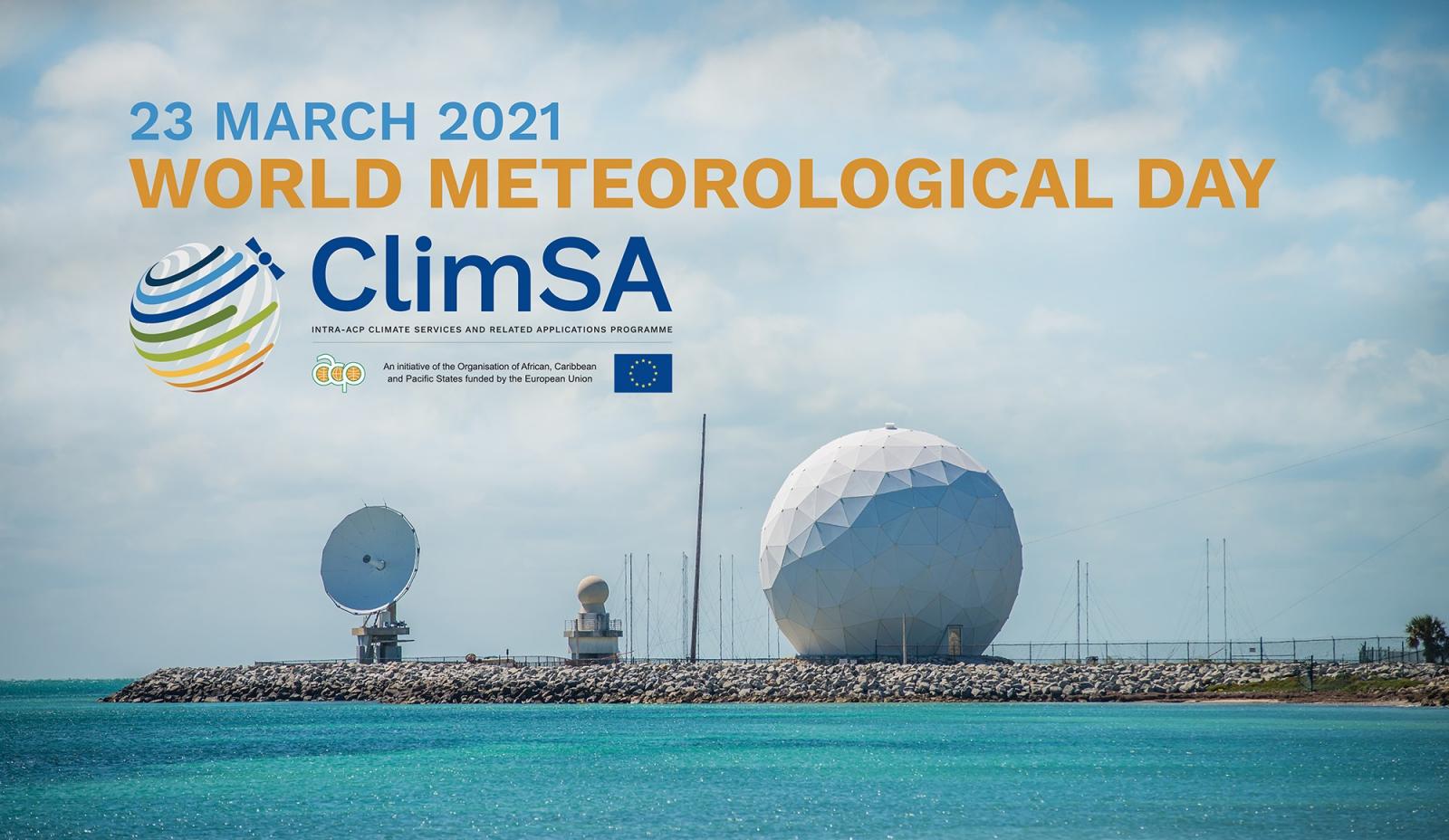Statement by the OACPS Secretary-General, H.E Mr Georges Rebelo Pinto Chikoti on World Meteorological Day
 Brussels, 23 March 2021/OACPS: World Meteorological Day (WMD) is marked on 23March every year, to showcase the essential contribution of National Meteorological and Hydrological Services (NMHSs) to the safety and wellbeing of society.This year, in cognisance of the Ocean’s central role in our climate system, #WorldMeteorologicalday, themed,“The ocean, our climate and weather”, marks the startof the United Nations (UN) Decade of Ocean Science for Sustainable Development (2021-2030). The Decade demonstrates the conviction of UN Member States that enhanced knowledge of the ocean is a prerequisite to achieving sustainable development; it also aims to galvanise efforts to gather ocean science – through innovative and transformative ideas- as the basis of information to support sustainable and inclusive development.
Brussels, 23 March 2021/OACPS: World Meteorological Day (WMD) is marked on 23March every year, to showcase the essential contribution of National Meteorological and Hydrological Services (NMHSs) to the safety and wellbeing of society.This year, in cognisance of the Ocean’s central role in our climate system, #WorldMeteorologicalday, themed,“The ocean, our climate and weather”, marks the startof the United Nations (UN) Decade of Ocean Science for Sustainable Development (2021-2030). The Decade demonstrates the conviction of UN Member States that enhanced knowledge of the ocean is a prerequisite to achieving sustainable development; it also aims to galvanise efforts to gather ocean science – through innovative and transformative ideas- as the basis of information to support sustainable and inclusive development.
The Ocean Decade, the key objectives of which include: enhancing humanity’s relationship with the ocean, bridging ocean health and wealth, working with diverse stakeholders, harnessing the latest ocean knowledge, and developing an action agenda for transitioning to a sustainable ocean economy, seeks to create a paradigm shift in the generation of qualitative and quantitative ocean knowledge to inform the development of solutions to contribute to the attainment of the 2030 Agenda for Sustainable Development and the implementation of the Paris Agreement. To achieve its vision of “the science we need for the ocean we want”, the Ocean Decade – via its Implementation Plan – sets out a framework to catalyse transformative ocean science solutions for sustainable and inclusive development, thereby connecting people and the ocean.
The Organisation of African, Caribbean and Pacific States (OACPS), among its 79 Members, counts 37 Small Island Developing States (SIDS), whose economies are based on the ocean. As such, OACPS Secretary-General, H.E. Mr Georges Rebelo Pinto Chikoti, acknowledges the importance and relevance of World Meteorological Day and the Ocean Decade to the Members of the OACPS. Similarly to the rest of the world, within the OACPS, hazards such as storms, flash floods, heatwaves, and droughts have become increasingly commonplace, more severe and devastating. Long-term climate variation and change are expanding the intensity and frequency of extreme weather and climate events, leading to sea level rise and ocean acidification. Secretary-General Chikoti urges, that now more than ever, it is imperative for the world to change its way of thinking, acting and feeling about the ocean.
The Blue Economy refers to an ocean-based economic model which employs sustainable technologies and infrastructure to secure growth whilst also protecting our oceans. It is a vital sector of common interest for Members of the OACPS whose people and businesses depend on the oceans and its resources. Collaboration should endeavour to ensure that the Blue Economy provides sustainable socio-economic benefits for not only current, but also future generations. It should also safeguard and maintain marine ecosystems to ensure that they are productive, rich and diverse. Capacity building and technology transfer in mutually agreed aspects of the Blue Economy will be critical to advance the innovation required to meet future challenges.
On this, the 71st World Meteorological Day, and in the lead up to the launch of the intra-ACP–Climate Services and related applications (ClimSA) Programme – which aims to improve the quantity and quality of climate services offered by regional climate centres and hydro-meteorological organisations in the OACPS regions and to increase knowledge and information services to benefit economies, societies and the environment – Secretary-General Chikoti calls for improved production and dissemination of Climate Information Services. Secretary-General Chikoti further advocates for an accelerated uptake of Weather, Climate and Ocean Information Services in an enabling environment that strengthens knowledge frameworks and fosters multilateralism through partnerships with public institutions, private sector, civil society and vulnerable communities.
